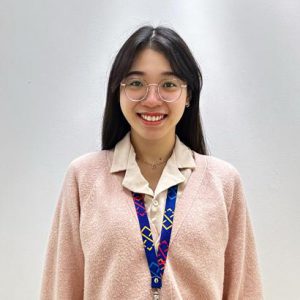As a higher education institution, IMU plays an important role in paving its students’ path towards their dreams. One of these students is Lim Ka Keat, an IMU Alumnus from the pharmacy programme. After completing his Part A in IMU, he transferred to University of Strathclyde for the completion of his degree. Ka Keat recently graduated with an MSc International Health Policy (Health Economics) from the London School of Economics (LSE). His dissertation won the Brian-Abel Smith prize for best dissertation for the MSc. After Ka Keat completed his degree, he worked in Putrajaya Hospital for his pharmacy pre-registration training. At the end of 2010 he joined the Healthcare Statistics Unit in Clinical Research Centre as a project manager working on several projects on drug utilization as well as distribution of health services, facilities and healthcare workforce in the country. That was how he became interested in health policy and economics and subsequently applied for further study in this area. “I decided to apply to LSE as it offers several subjects which I am really interested to learn, in particular health system performance. It was an eye-opening experience. Having worked as a healthcare service provider and a health services researcher in Malaysia, it is interesting to observe how things work similarly and differently in UK and Europe. The best thing about it is it is also good to interact with students from different countries and cultures.”, said Ka Keat, who intends to pursue his PhD in similar area in future. “My dissertation was on the impact of England hospital mergers on staff satisfaction. In England, although most hospitals are publicly funded, their administrations are totally independent from the government. This includes merging if they want to save administration cost or to achieve economies of scale. My dissertation was looking at how staff satisfaction changed over time before and after a merger takes place.” “The most useful tool that I have learnt at IMU is independent learning. I think, that one should learn widely rather than just relying on textbook. The twinning programme also gave some exposure to the world outside Malaysia. It was the familiarity with UK which made me thought about exploring a postgraduate degree here.” His message for students who would like to pursue a career in pharmacy is “Many students would enroll thinking that a career in pharmacy is only restricted to running a community pharmacy business because that is our most common encounters with pharmacists in our daily life. But actually there are more pharmacists working in hospitals (especially public hospitals) than in community pharmacies. In fact, there are other career options: industry, academia, research, regulatory, enforcement. So I would advise them to keep their options open. Of course, with increasing number of pharmacy graduates over the years, the field also becomes more competitive. At the same time, it also means there are more opportunities for the profession to grow and contribute more to patient care.”

Close
- Schools & Centres
- Centre for Pre-University Studies
- School of Medicine
- School of Dentistry
- School of Pharmacy
- School of Health Sciences
- School of Alternative and Complementary Medicine
- School of Business and Technology
- School of Psychology and Social Sciences
- School of Postgraduate Studies
- Clinical Skills and Simulation Centre (CSSC)
- Centre for Lifelong Learning (ICL)
- Centre for Education (ICE)
- Programmes
- Pre-University
- Undergraduate
- Biomedical Science
- Bioveterinary Science
- Business Administration with Healthcare Management
- Chinese Medicine
- Chiropractic
- Communication with Health
- Dentistry
- Dietetics with Nutrition
- Digital Health
- Medical Biotechnology
- Medicine
- Nursing
- Nursing (ODL)
- Nutrition
- Pharmaceutical Chemistry
- Pharmacy
- Psychology
- Postgraduate
- Acupuncture
- Analytical & Pharmaceutical Chemistry
- Business Administration in Healthcare Management
- Clinical Psychology
- Counselling
- Diabetes Management & Education
- Endodontics
- Health Informatics & Analytics
- Healthcare Management (PhD)
- Health Professions Education
- Health Professions Education (PhD)
- Implant Dentistry
- Medical & Health Sciences
- Molecular Medicine
- Pharmacy Practice
- Prosthodontics
- Public Health
- Open & Distance Learning
- Executive Education
- Micro-Credential
- Short Courses
- Student Mobility
- Pre-University
- Admissions
- Campus Life
- Research & Commercialisation
- Innovations
- Healthcare
- About IMU
- Careers







